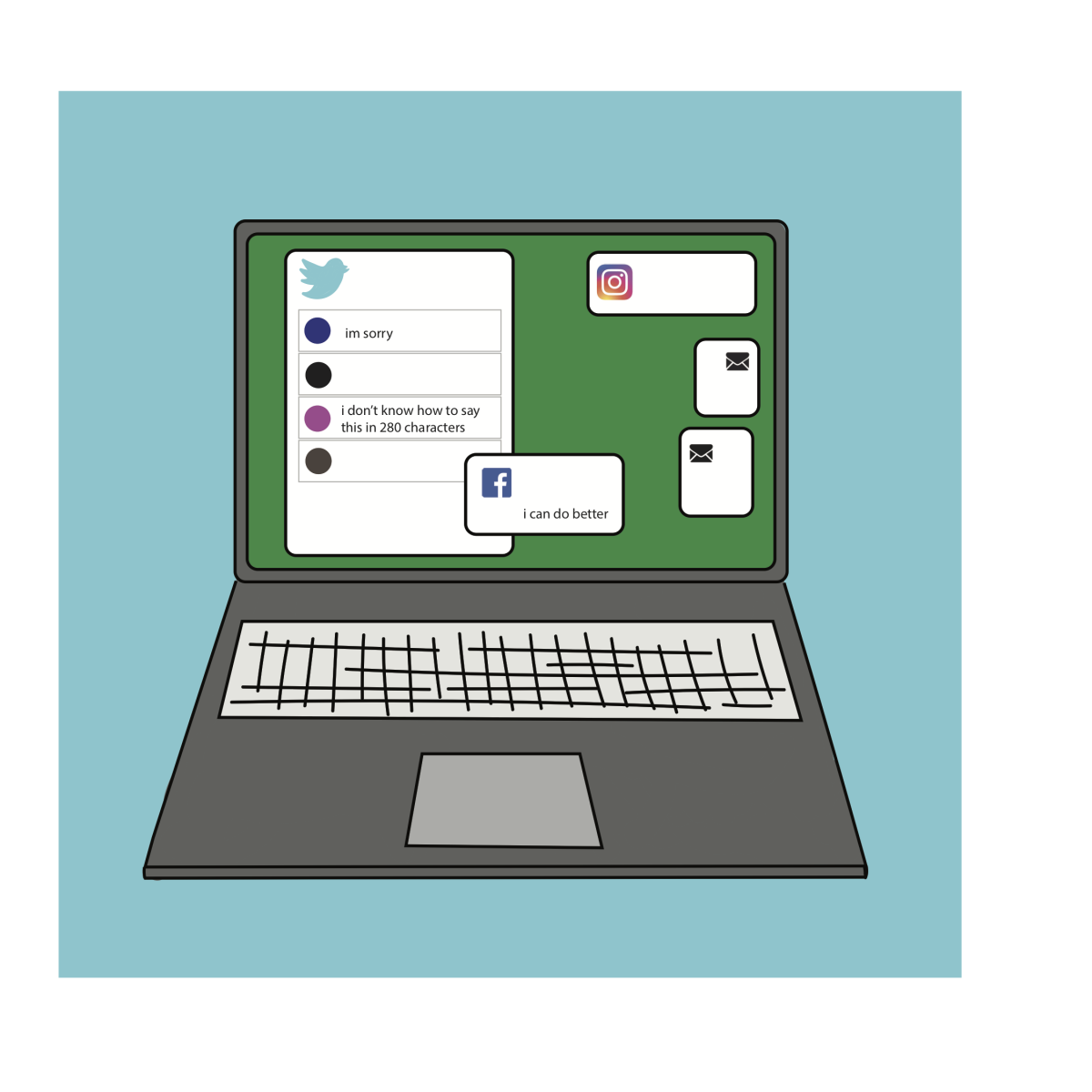Finding hope for sincerity in a Notes app apology world
Think back to the last time you remember apologizing. Why did you do it? Was it because you genuinely felt remorse for the hurtful words or actions that you said or did? Or did you apologize in order to assuage your sense of guilt and discomfort?
Reflect on the manner in which you apologized. Did you sit the person down, ask for their experience and offer a sincere apology? Was the apology handwritten, in person or digital?
In this fast-paced and technologically-centered world, it is hard to know how to properly apologize to one another anymore. We are fed mass apology statements all over social media by celebrities and businesses that lose the trust of their customers. Often, we see a famous person post a picture online of their apology statement on the iPhone Notes app.
This specific medium is frequently used for celebrity mass communication because it provides an easy way to share your message. Notes app apologies are screenshotted and dispersed to the many social media platforms and then eventually parsed for headlines in entertainment news media. They are displayed in tabloid magazines just as any publicist-approved statements might be.
As we scroll through the carefully proofread and edited paragraph, we are expected to take their apologies seriously as a genuine attempt at showing remorse.
However, when you consider the rhetoric and language used in these supposedly personal apology notes, they begin to blend together.

A false sense of intimacy is evoked by the presence of curse words and/or spelling errors. This is purposely done to show that the guilty party is like everyone else: a fallible human.
Another common trait in these apologies is the use of cliche phrases. Often, these paragraphs have at least one phrase that looks like this: “from the bottom of my heart” or “I wish I knew then what I know now.” Because social media encourages this false sense of connection, people are drawn to these forms of apologies.
There are a lot of different reasons for these mass apologies.
Armie Hammer released one on Twitter saying he was sorry “from the bottom of [his] heart” in the wake of backlash regarding his comments about fan tributes to Stan Lee after his death.
Ja Rule released a less than genuine apology when his widely advertised music event, Fyre Festival, proved to be a giant scam. The words slapped across an off-white screen were as follows: “I truly apologize as this is NOT MY FAULT… but I am taking responsibility.” Here, Ja Rule completely contradicts himself, which makes for a less than adequate apology.
While these cases can make the world seem disconnected and insincere, there is hope. A good apology is like a recipe or a mathematical formula. When comprised of the right amount of empathy and responsibility, all parties can leave the situation not only happy to have a solution, but a stronger relationship.
In this recipe for success, it is essential for the person apologizing to be direct and to get to the point. Lose the excuses or defenses for your actions. By admitting your wrongdoing, there is space for the most important part of a genuine and beneficial apology: the pledge to do better. This will complete your attempt at making things better.
Make a statement about how you plan to improve and avoid these mistakes in the future. This effort will make people more likely to accept and believe your remorse.
When you are accepting an apology, understand your role to be heard as well as to hear the apology. People desire to be taken seriously and to be listened to.
Empathy makes an apology real and creates a platform for compromise and growth. Put yourself in the other person’s shoes when you are apologizing and accept how your actions made them feel.
It is important to remember that apologizing doesn’t always mean that you are wrong. Sometimes they come from good intentions, but then it creates a problem. Many times, it has to do with tone, or how someone says something.
Try not to allow a “lack of knowledge” to be a scapegoat and lessen ownership. Lastly, both parties in an apology have to come to terms with the fact a “sorry” might not be enough.
In a sea of Notes app apologies, it is hard to know how to approach these kinds of situations in real life with another person you care about sitting across from you. The best thing you can do, whether you’re on the giving or receiving end, is to speak and listen from the heart.








































